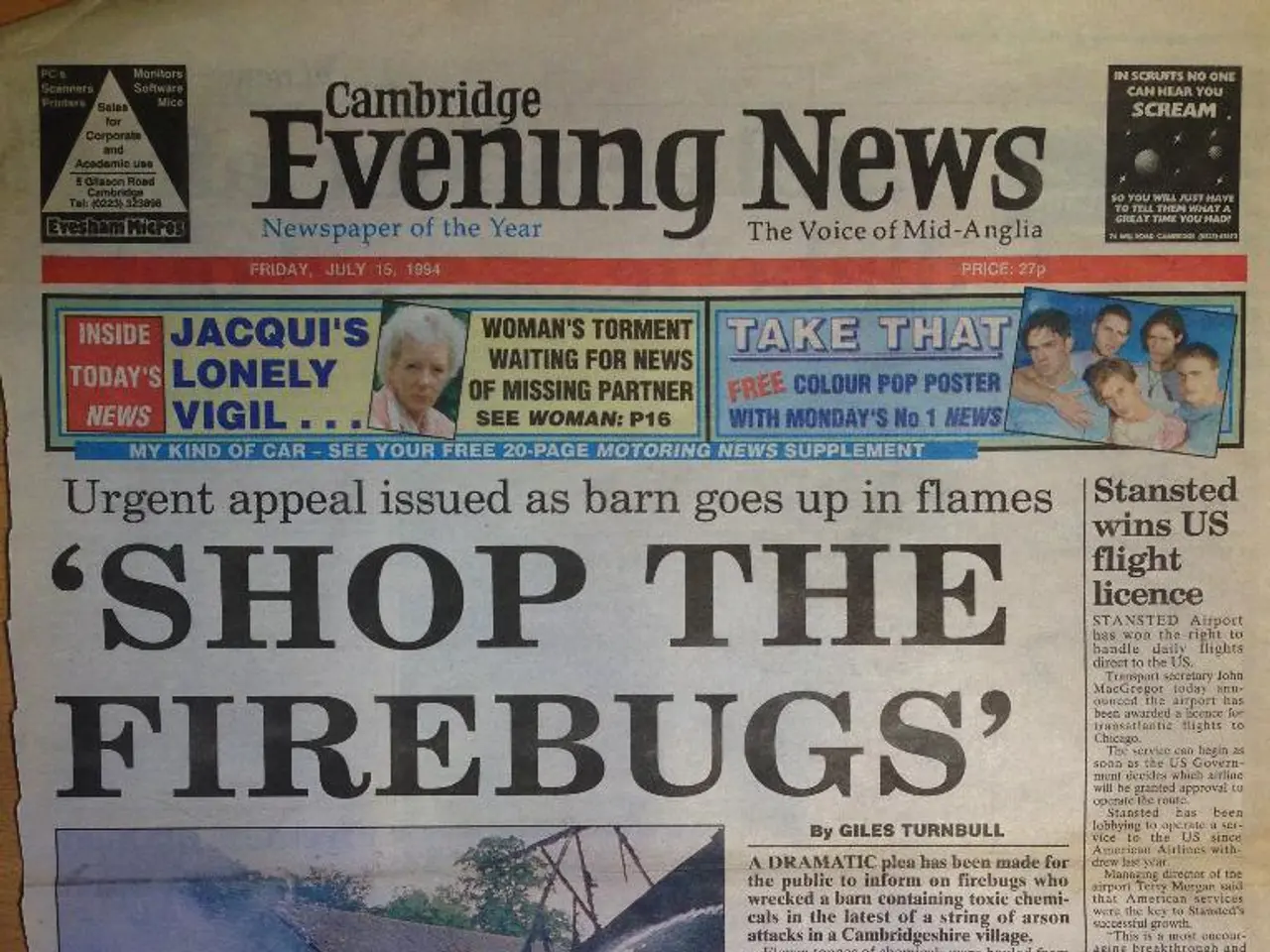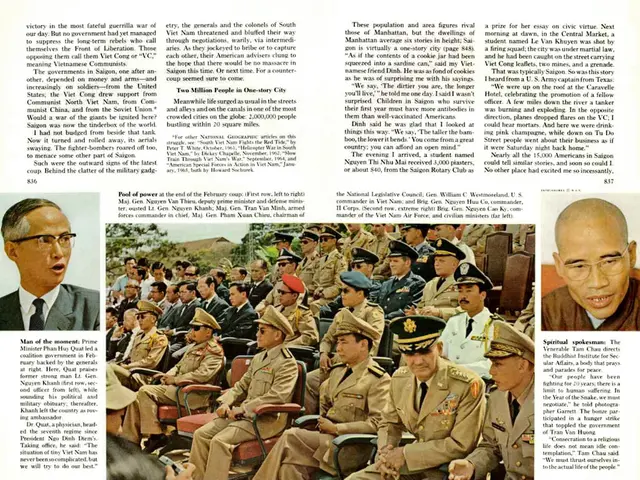BBC should cultivate more boldness according to Alan Rusbridger
The BBC, a cornerstone of British broadcasting, finds itself under intense scrutiny and debate. The organisation's director general, Tim Davie, who has a marketing background, is facing criticism from some quarters for his lack of a journalistic touch in handling the issues effectively.
The BBC's impartiality is under question, with around-the-clock lobbying groups scrutinising every second of footage. Some claim the BBC is institutionally biased against Israel, while others argue it favours Israel. This controversy has been brewing for some time, and the organisation's handling of the crisis has left many across the political spectrum disliking the broadcaster.
The BBC's budget, approximately three billion pounds, has been a point of contention. Some argue that changes to its funding and governance arrangements are necessary to make it truly independent. The Prime Minister Keir Starmer's government is expected to address these issues in the near future.
The David Kelly story, a past scandal that led to a standoff between the Labour government and the BBC and a judge-led inquiry, still looms large. The BBC has not fully recovered its nerve since the incident, and loss of nerve is a crucial litmus test, according to some critics.
Alan Rusbridger, the former editor in chief of The Guardian for two decades and now editor of Prospect magazine, shares these concerns. He believes the problems at the Beeb go much deeper and are going to be much harder to root out. Rusbridger, who feels privileged having worked at The Guardian which had no proprietor and a trust to protect the journalistic work, is also concerned about the state of press freedom in America, particularly the economic threat to local press and the lack of solidarity among broadcasters.
In recent times, the BBC has faced criticism for its handling of a documentary about life inside wartime Gaza. The documentary was retracted by the BBC in February due to the narrator's relationship with a Hamas official. A review pointed fingers at the independent production company for not informing the broadcaster of the relationship and also acknowledged key failures on the part of BBC leadership in vetting the project.
Rusbridger, along with many others, feels that the BBC needs a strong editorial leader who can back the journalism. He thinks journalists need to change their ways and collaborate more to withstand pressure. A leader who can navigate these complex issues and maintain the BBC's commitment to impartiality and excellence in journalism is crucial for the organisation's future.
As the BBC continues to navigate these challenges, its role becomes more essential in a world where there's a different idea of what journalism is in much of the press. The organisation's ability to maintain its impartiality, address its internal issues, and adapt to the changing landscape of journalism will be key to its survival and continued relevance in the 21st century.
Read also:
- Trump's impact on Americans to be explored in new podcas to be hosted by Alex Wagner, in partnership with Crooked Media
- Trials in Quebec mirroring the strains, aspirations, and divisions of the present era
- Domestic cultural consumption habits shift during post-lockdown era
- Zodiac Signs Predicting Favorable Horoscopes on June 3, 2025:








